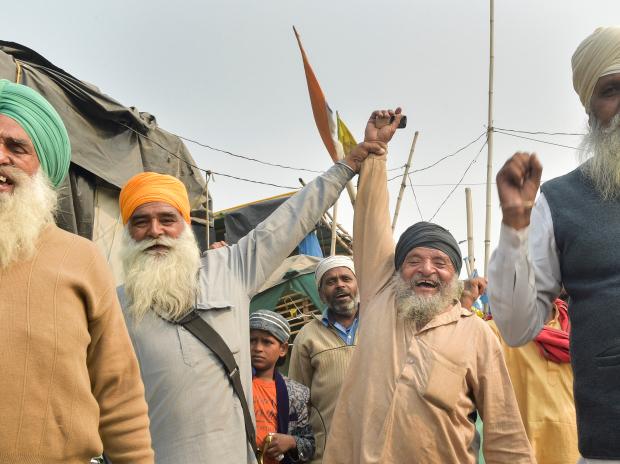A top UN human rights expert has welcomed the Indian government’s decision to repeal the three controversial farm laws, expressing hope that any subsequent action on reforming the agriculture sector will be informed” by the country’s human rights commitments and taken through meaningful consultations with farmers, communities and unions.

Addressing the nation on the occasion of Guru Nanak Jayanti on November 19, Prime Minister Narendra Modi announced that his government had decided to repeal the three farm laws, which were at the centre of protests by farmers for the past year. He appealed to the protesting farmers to return to their homes.
Modi insisted that the laws were in the benefit of farmers, adding that the government could not convince a section of farmers despite its clear heart and a clean conscience.
What was at stake with these laws was the stability of India’s entire food system. Let’s hope that subsequent actions on reforming Indian agriculture are informed by the country’s human rights commitments and taken through meaningful consultations with farmers, communities and unions, UN Special Rapporteur on the right to food Michael Fakhri said.
“While I acknowledge the lengthy process that preceded the passing of the laws, what ensued over the last year is an indication of the deep dissatisfaction felt by hundreds of thousands of people,” Fakhri said in a statement on Friday.
It also illustrates that freedom of expression is a valuable tool for empowering people to influence policy change through mobilisation and peaceful protest, it said.
The statement said that along with other UN experts, the Special Rapporteur has engaged the government regarding the laws’ potential to detrimentally impact the right to food, and the severe restrictions on fundamental freedoms authorities imposed amid the demonstrations.
The UN expert suggested drawing important lessons for public decision-making related to food security in India.
We should reflect on questions on what meaningful public consultations should ideally entail, and how a more participatory approach could lead to more popular decisions. The Government should consider how agricultural reforms can be implemented in full respect and fulfilment of the country’s economic, social and cultural rights, including the right to food, Fakhri said.
Fakhri noted that India’s Supreme Court played an important role when it ordered the government to provide more time and space to hear farmers’ grievances.
Now, to truly turn the page on this painful chapter, it is incumbent on the authorities to heed calls for accountability concerning more than 600 casualties reported during the protests, and guarantee measures to prevent any repetition of such events, the statement said.
The UN release said that Fakhri’s call was endorsed by Special Rapporteur on the right to freedom of opinion and expression Irene Khan, Special Rapporteur on human rights and the environment David Boyd and Special Rapporteur on extreme poverty and human rights Olivier De Schutter.
Fakhri was appointed Special Rapporteur on the Right to Food by the Human Rights Council last year. He is a professor at the University of Oregon School of Law where he teaches courses on human rights, food law, development, and commercial law.
The three agricultural laws were passed in 2020 at the height of the COVID-19 pandemic.
Many farmers had been protesting and were encamped at Delhi’s borders since November 2020 with a demand that the Farmers’ Produce Trade and Commerce (Promotion and Facilitation) Act, 2020, Farmers’ (Empowerment and Protection) Agreement on Price Assurance and Farm Services Act, 2020 and the Essential Commodities (Amendment) Act, 2020 be rolled back and a new law made to guarantee minimum support price (MSP) for crops.
Support InfoStride News' Credible Journalism: Only credible journalism can guarantee a fair, accountable and transparent society, including democracy and government. It involves a lot of efforts and money. We need your support. Click here to Donate
